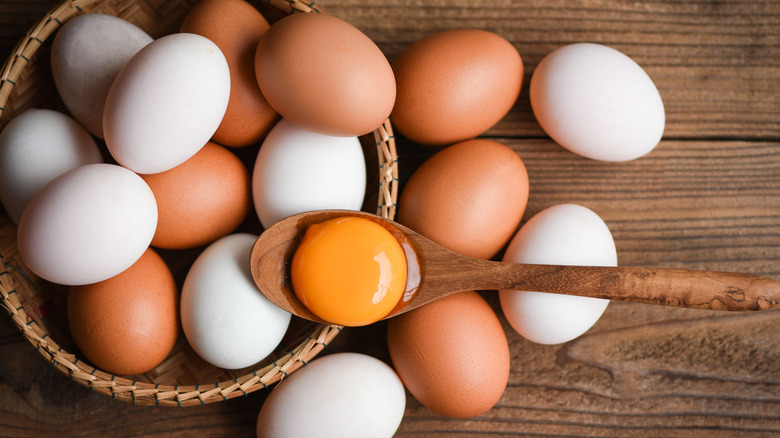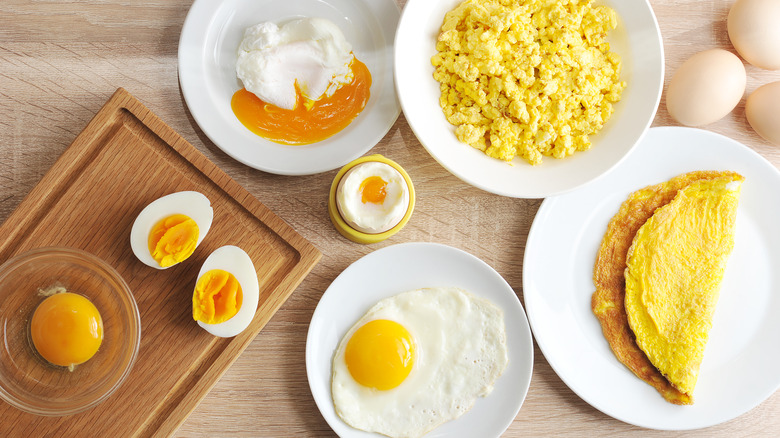A New Vegetable Egg Invention Could Be A Game-Changer For Vegans
Though the classic question may be about what came first, the chicken or the egg, another egg-related quandary has many foodies puzzled: Can plant-based eggs really mimic the real thing? That's ultimately a matter of opinion, but many companies are trying to accomplish just that.
According to Portugal Resident, the country's Centre for Food Education and Research (CFER) Plantalicious team has created an egg substitute made from soy and other ingredients extracted from plants. While limited information is available on this engineered food, it is said to scramble just like a traditional poultry egg. In a video on the Plantalcious Instagram page, the pourable egg alternative seems to create a fluffy, vibrantly hued scrambled product. Although the offering is not available for purchase yet, there already seems to be a market for it. According to Statista, the global vegan food market was valued at approximately $16 billion in 2021. Considering its 9% yearly projected growth rate, it appears that more companies will be looking to crack open plant-based food options. Now, here's a third question to add to the egg-inquiry list...
How is a vegan egg made?
As vegan food options continue to find space on store shelves, some people are likely wondering just how those plant-based foods come to fruition. While meat substitutes are more widely available, the engineering of a vegan egg can be a difficult one to crack. The BBC recounted the plant-based egg's journey over the years, starting in part with a 2013 British blogger recipe that created a pretty convincing version of hard-boiled eggs made with soy milk and a seaweed product. Since then, there have been evolutions with products that can mimic eggs in baked goods or even provide that runny yolk texture. These days, brands like Just Egg, Follow Your Heart Vegan, and several others offer easy to use, pourable substitutes for chicken eggs.
In Just Egg's case, the "eggs" are made with a surprising ingredient: mung beans are used to give them their eggy texture and high protein content. Plus, turmeric gives them their color. Other brands, like the new Plantalicious product from Portugal, may use soy, while some choose chickpeas. More than one brand has figured out how to replicate eggs' aroma with sulfurous-smelling salts. With all of these options on the market, some people might still opt for a traditional poultry egg, but others may prefer to keep the shells out of the bowl and choose a vegan version.

